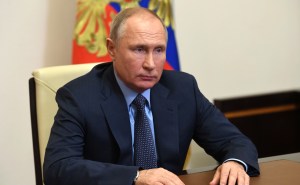As the world reacts in shock to Russia’s full-scale invasion of Ukraine, we look at the economic consequences to people living in the UK.
This year the cost of fuel has already risen considerably, pushing the cost of heating and transport through the roof, as the energy price cap is set to rise by more than 50% from April.
Thanks to Vladimir Putin’s actions this trend could worsen, as Russia is the second biggest oil producer in the world, while much of its oil is supplied to Europe.
 If Western Europe is serious about isolating Russia, you’d think the European Union, US and UK would stop trading oil and gas with Russia - albeit the UK only imports 3% of its natural gas directly from Russia.
If Western Europe is serious about isolating Russia, you’d think the European Union, US and UK would stop trading oil and gas with Russia - albeit the UK only imports 3% of its natural gas directly from Russia.
Oil prices rose to a peak of $105 per barrel on Thursday, though research consultancy Capital Economics said it could rise as high as $130pb if exports to the West are interrupted.
Prime Minister Boris Johnson publicly called for the west to end its dependence on Russian oil and gas in response to the crisis, but it remains to be seen how Europe and North America will respond.
Higher inflation
The rising cost of crude oil is likely to feed into higher prices on other goods, like food and drink, manufacturing and packaging.
This could make it harder for consumers, and it makes decision-making tougher for the Bank of England.
The Bank has already raised the base rate twice in recent months to curb rising inflation, but now it faces some tough decisions.
Paul Dales, chief UK economist at consultancy Capital Economics, notes that “a geopolitical crisis usually prompts policymakers to become more cautious”.
However he still thinks the Bank will go ahead with raising the base rate to curb dangerous levels of inflation, which could worsen thanks to Russia’s actions.
He said: “With inflation already so far above the 2% target and the Bank worried that this will feed into future price and wage decisions, this time the Bank will be more concerned than usual about the upside risk to inflation.
“As such, we think it is unlikely to abort its plans to raise interest rates further. We haven’t changed our forecast that rates will rise from 0.50% to 0.75% in March and, eventually, to 2.00%.”
Rising base rates will ultimately filter into higher mortgage and loan rates for consumers, so paying the bills could get tougher in the month’s ahead.


